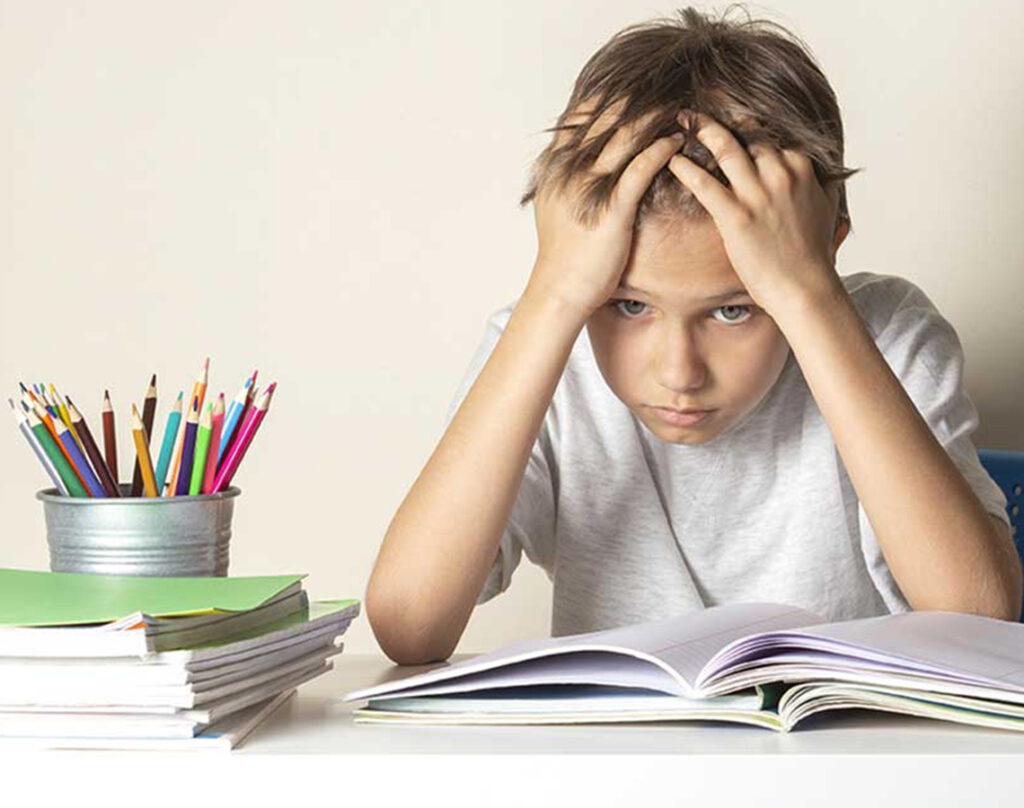
Last Updated on 24 January 2024 by foundationsmile

WHAT ARE LEARNING DISABILITIES (LD)?
Learning Disabilities affect a child’s ability to learn, retain and process information. As a result of LD, some children find it difficult to listen, speak, read, write and do math. They find it difficult to understand and absorb information taught in traditional school formats. Typically children with LD are of normal and even above-average intelligence. However, they don’t do well with school skills and academic performance, despite their normal intelligence. Generally, there is also quite an obvious difference between their oral and written work, with the latter being quite poor.
There are several kinds of Learning Disabilities. They include:
Dyslexia: Difficulty with reading and spelling. Example: Confuses and reverses letters/letter order in words (e.g. d/b, p/q, was/saw) and has trouble reading.
Dyscalculia: Difficulty with math’s. Example: Confuses between signs (+, -, x and /), difficulty understanding and doing word problems.
Dysgraphia: Difficulty writing and forming letters. Example: Writing may be slow, laboured or illegible; inconsistent and poor spelling.
Children with LD do not have primary sensory problems such as mental retardation, emotional disturbance, or motor handicap.
The causes of LD appear to be genetic. Some forms of LD like dyslexia could be caused by head injury or trauma (not very common though). Some children with dyslexia appear to process (make sense of) information using a different area of the brain than children without a learning disability.
Children with LD are usually of normal intelligence and hard-working. They do well in most non-classroom activities. Thus LD sometimes goes unnoticed for a long time. School teachers, parents can care givers can observe some early warning signs. If these signs are consistent, they should refer the child to a health professional for evaluation.
(Please note: The above is not an all inclusive list of signs and symptoms of LD/dyslexia. Use this list as a general guideline only, not as a basis for diagnosis.)
If a child exhibits a number of these signs, you should refer the child to a special educator or a pediatrician to coordinate a full evaluation. This evaluation will tell you the kind of LD that the child has and his/her learning style. Based on this information, suitable steps can be taken to help the child become a better learner. Is the child an auditory learner, meaning that s/he learns best by hearing information? Is the child a tactile learner, meaning that s/he learns best by touch or “hands-on”? Finally, is the child a visual learner, meaning that s/he learns best by seeing information? Using the child’s learning style when presenting new information may be beneficial to the child with LD.
A pediatrician or school can refer you to an appropriate source to assess the type of LD and identify the child’s learning style. Various professionals can help your child manage their Learning disability. A special educator, etc… The process will usually involve assessing the child’s intelligence usually using and IQ score, for very young children may not do this. Next assessment will involve a special educator, who looks at your child’s academic performance and how she processes information. For children at risk it may not be necessary to do a full assessment before starting intervention.
Observing the child or having him/her evaluated will help you understand the individual learning style – so you will be able to reinforce school skill in a manner more suitable to the child. If there is special educator in the community, find a teacher who will works will help you with a programme of management. In addition to this, some putting some basic systems in place will help the child to focus and learn better.
Some things you could do in addition to the specific strategies that your special educators recommend:
Find your child’s strengths in and out of the classroom, celebrate them and teach your child to use these strengths to his best advantage. Educate yourself about the learning disability from credible certified sources. And above all be in constant touch with the child’s teacher to understand if the learning strategies are successful.